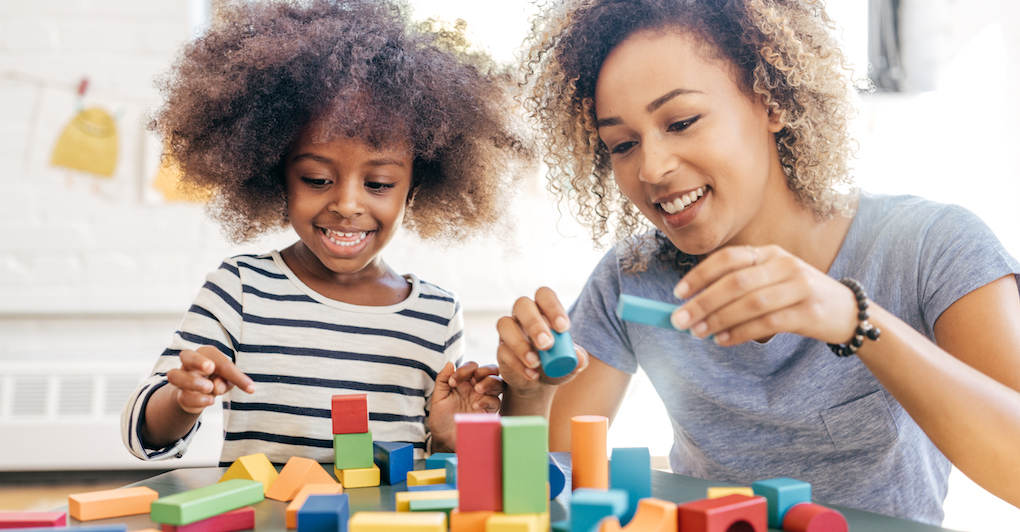It’s important that children get to experience play, both for their physical and cognitive development, but how do you know when your child is getting enough?
Learn all about the importance of play and how much playtime your child needs.
Benefits of play for babies and toddlers
Playtime is fun for your little frolicker, but it’s also an important part of her overall health and wellbeing. In fact, regular playtime is integral for helping small children grow and develop both physically and psychologically.
According to the American Academy of Pediatrics (AAP), play:
- Encourages emotional development and resilience, including helping children work through hard feelings.
- Boosts self-confidence.
- Promotes physical dexterity and strength.
- Fosters imagination and creative thinking as well as problem-solving.
- Offers a chance to explore new roles, including practicing adult roles.
- Promotes social development, helping children learn how to work in groups, share, negotiate and resolve conflicts.
- Teaches children how to advocate for themselves.
- Gets children ready to learn at school.
Play is also an important way for parents and children to bond. You might catch the first glimpse of a smile from your infant while playing peekaboo or singing a silly song. As she grows into a toddler, playing together serves as a chance to help her learn valuable lessons and find effective ways to communicate with each other.
Most importantly, giving your child your full attention during playtime sends her the message that she matters and is loved.
How Much Playtime is Recommended by Experts?
There’s a minimum amount of playtime that experts recommend, but that doesn’t mean that you should stop there.
It’s important that children receive at least an hour of free playtime, and a half hour of guided playtime every day, though they should receive more if possible.
This doesn’t include screen time. While screen time can help if children are playing games, many of their skills are developed when they’re able to move and interact with the world.
So, what are the different types of play, and why should you bother?
Why Does Play Matter?
Now that we know the numbers, it’s important that you understand that playtime isn’t just for leisure. Depending on the types of play your child is engaging in, they get plenty of benefits out of playtime.
Playtime helps your child engage with the world. When they’re small, children are learning new things all the time. They’re learning spatial awareness, sensory details, social skills, and more.
Basically, for children, playtime is learning time. A child wanting to play isn’t wasting time, even if they’re having fun.
What Kinds of Play Should We Encourage?
So, we know that play matters, but what types of play should children be engaging in, and how can we encourage it?
All children are different, and they may need more or less encouragement in different areas depending on their personalities. Right now, though, you’re helping to form that personality by encouraging various types of play.
Physical outdoor playtime is crucial for a child’s physical development. When they run and play, they’re refining their gross and fine motor skills. They’re also getting adequate amounts of sunlight which may help with eye health.
Social playtime is important for children as well. Children need to play with others in order to develop social skills.
Indoor solitary playtime, like playing pretend, playing with toys, or even coloring, helps to develop creativity and cognitive flexibility. Children also learn independence when you allow them to play on their own.
Parent-guided play, where you take a more hands-on role, is great for young children. This is where you use playtime as a teaching moment. For example, ask your child why they’re setting up their blocks a certain way, or guide them to do so in a way that their block towers will stay stable.
This helps with parent-child bonding, as well as cognitive skills. When a child has to explain what they’re doing, they learn more effectively.
Does Your Child Play Enough?
Play is essential for proper childhood development. While it’s great to prepare your child for the world through educational tasks and tools, playtime allows them to learn on their own and decompress.
When you don’t make enough time for your child’s play, you’re doing them (and yourself) a disservice.
At Rising Stride Child Care Centers we understand the importance of play and exploration. A child’s education begins with toys and friends. Do you want to start your child’s education off right with an engaging play and learning environment?
Contact us today with any questions or to register your child today. We can’t wait to meet you.

